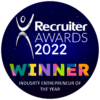Hiring Purpose-Driven Talent
The Playbook
The shift to purpose driven work
In the early days of 2025, we’re witnessing a fundamental shift in how people choose their employers and build their career paths. The days of selecting jobs solely based on salary and benefits are long gone. Instead, the evolving workforce is driven by purpose, values, and the desire to make a meaningful impact.
The COVID-19 pandemic was a major catalyst for this change across all age groups. When people’s livelihoods were defined as “essential” or “not essential”, and many went months without seeing friends or family face-to-face, professionals in every industry realised there’s more to life than chasing paychecks and promotions.
This heightened focus on purpose has become both an opportunity and a challenge for companies. While companies deemed “socially responsible” naturally have the upper hand, attracting and retaining purpose-driven talent requires more than good intentions. It demands a deep understanding of what they’re really looking for beneath the surface.
In this report we’ll …
create a comprehensive profile of the evolving workforce, uncover what drives their career decisions, and provide actionable strategies to help your socially responsible company attract and retain purpose-driven talent. Most importantly, we’ll show you how to make your business stand out in an increasingly purpose-led market where good intentions aren’t enough anymore.
At SR2, we’re uniquely positioned to guide you through this market shift. As a B-Corp-certified recruitment firm operating across the UK, US, and Germany, we specialise in connecting socially responsible companies with top-tier talent who share their values and purpose. Our focus spans clean energy, tech for impact, and public sector consulting, giving us unparalleled insight into how purpose-driven professionals think and what they’re looking for in their next role.
What does the average worker look like in 2025?
To understand the evolving workforce, we need to look beyond traditional demographics. Instead, we need to dive deep into what shapes the average worker’s worldview, drives their decisions, and influences their career choices. While our analysis draws from comprehensive tech industry data, these trends reflect shifts across all sectors.
”THE AVERAGE CANDIDATE IN 2025 HAS DIFFERENT EXPECTATIONS, GOALS AND NEEDS THAN PREVIOUS GENERATIONS. LOOKING AT THE DATA WE CAN SEE 3 KEY FACTORS DRIVING THIS CHANGE...
ALICIA TEAGLEDIRECTOR, SR2 GROUP
 AGE: THE MILLENNIAL AND GEN-Z TAKEOVER
AGE: THE MILLENNIAL AND GEN-Z TAKEOVER
Currently, 85% of tech professionals are Millennials (29-44) or Gen-Zers (13-28), and Gen-Zers make up almost 50% of people learning to code. This means a huge influx of young, technically skilled people will join the workforce in the next few years. By 2030, 30% of the workforce will be Gen-Zers, and some reports suggest there will be more Gen-Z professionals than Baby Boomers in the workforce by 2025.
The future workforce is predominantly young and digitally native, yet a shocking 75% of managers struggle to hire and work with Gen-Zers, particularly as they find it difficult to pinpoint exactly what these professionals need in the workplace.
Millennials and Gen-Zers have grown up in an era of pandemics, climate crises, social justice movements, and rapid technological change. As a result, they have fundamentally different workplace values and expectations from those of other generations.
 EDUCATION: A DIFFERENT KIND OF LEARNING
EDUCATION: A DIFFERENT KIND OF LEARNING
The evolving workforce values continuous learning over traditional credentials alone. While almost 60% of tech professionals hold a bachelor’s degree or higher, what’s more significant is how people at all career stages approach ongoing development.
An impressive 82% of workers use online resources for skill development, while 50% leverage e-courses and certifications. For employers, it’s clear that they must adapt their learning and growth opportunities to support the future workforce’s expectations, particularly as 66% of Gen-Zers consider unlimited internet access more valuable than a university degree!

By drawing these threads together, we can assume that the average worker in 2025 will be a Millennial or Gen-Zer. They’ll hold a bachelor’s degree but would like their employer to support their growth through further online training. They’ll likely work full-time but will do so in a hybrid or remote-first setting because they value flexibility.
 FLEXIBILITY: THE NEW NORMAL
FLEXIBILITY: THE NEW NORMAL
The way people work and the way people want to work will continue to transform as we move into 2025. In the UK, 59% of professionals are employed full-time, 12% are registered as self-employed, and 18% work part-time. In the tech industry, 81% are full-time, 18% are independent contractors or freelancers, and 6% work part-time.
Interestingly, 70% of UK-based professionals had never worked from home before the COVID-19 pandemic. Now, only 43% commute to the office five days a week, 28% have a hybrid setup, and 13% work from home. In the tech industry, a mere 20% of professionals are office-based, 42% work in a hybrid environment and a whopping 28% are fully remote.
Across all generations, the majority of professionals are no longer willing to commute to a 9-5 job five days a week. Instead, they’re prioritising flexibility and work-life balance. This means that rigid companies that refuse to evolve will soon struggle to attract and retain Millennials and Gen-Zers (if they aren’t already feeling the crunch).
By drawing these threads together, we can assume that the average worker in 2025 will be a Millennial or Gen-Zer. They’ll hold a bachelor’s degree but would like their employer to support their growth through further online training. They’ll likely work full-time but will do so in a hybrid or remote-first setting because they value flexibility.
What does the average worker in 2025 (really) want?
In order to attract the talent you’d like on your team, it’s essential to understand what really motivates them. That said, the evolving workforce’s wishlist differs dramatically from previous generations.
 SOCIAL RESPONSIBILITY AND ETHICS
SOCIAL RESPONSIBILITY AND ETHICS
Across all age groups, purpose isn’t just a nice-to-have-anymore. 89% of Millennials and 86% of Gen-Zers feel that having a sense of purpose is crucial to their overall job satisfaction and well-being.
The evolving workforce is also incredibly climate-conscious. A striking 42% of Millennials and 46% of Gen-Zers have changed jobs (or plan to do so) due to climate concerns. Plus, they want to be part of something positive. 75% of Gen-Zers thoroughly research a company’s societal impact before applying, 41% consider social and environmental ethics to be a dealbreaker, and 44% of Gen-Zers and 40% of Millennials would reject an offer from a company that did not align with their personal beliefs and ethics.
Purpose drives performance, and an impressive 36% of professionals admit that they’d work harder for a company that’s positively impacting society.

 NON-TRADITIONAL WORK ENVIRONMENT
NON-TRADITIONAL WORK ENVIRONMENT
The desire for flexibility spans all age groups. Whether it’s a young parent needing flexible hours, a mid-career professional balancing further education, or an experienced leader working remotely, organisations must adapt their models to accommodate the diverse needs and preferences of the evolving workforce.
There’s a strong misconception that Gen-Zers are desperate to avoid office-based work, but this isn’t entirely true. In the US, 57% of Gen-Zers seek office-based jobs, while just 27% prioritise fully remote roles.
To truly understand the average worker in 2025, imagine graduating during a global pandemic and spending the first 18 months of your career in a makeshift home office. In most cases, this has sent the Gen-Z workforce in two directions: those who hated working from home are now exclusively seeking office-based positions, and those who thrived working from home cannot imagine any other setup. Considering the ever-rising cost of living, public transport prices, and climate concerns, it’s no surprise that Millennials and Gen-Zers would rather cut their costs and carbon footprint with a hybrid arrangement.
The evolving workforce also cares about flexibility. In fact, 66% of women with flexible work arrangements will likely stay with their employer for more than three years. With evidence that remote flexibility can increase work-life balance by almost 26%, it’s understandable that 59% of Millennials and 54% of Gen-Zers feel that flexibility boosts their mental health and reduces the risk of burnout.
”PURPOSE-DRIVEN INDIVIDUALS AREN’T JUST LOOKING FOR A JOB; THEY’RE LOOKING FOR A PLATFORM TO MAKE A DIFFERENCE AND LIVE A FULFILLING LIFE WHILE BUILDING A CAREER.
NATHANIEL SMITHUS VICE PRESIDENT, SR2 GROUP
 FAIR PAY AND PURPOSE-LED BENEFITS
FAIR PAY AND PURPOSE-LED BENEFITS
As “purpose-driven” has become a buzzword, we’ve noticed a worrying trend. In a bid to cut costs, some companies actively seek “purpose-driven” candidates in the hope that they’ll be willing to work for less than they deserve. Here’s the brutal truth: making a positive impact doesn’t pay the bills.
It’s important to remember that Gen-Zers have grown up in an era of economic uncertainty, so it’s no surprise that 74% rank job security and starting salary among their top priorities and almost 30% expect an annual pay rise.
Professionals at all levels still expect competitive compensation that reflects their education, skills, and impact. But, rather than putting money above everything, salary has become just one part of a broader value equation that includes purpose, growth, and work-life balance.
In terms of benefits, your future employees aren’t looking for the bare minimum. Yes, private healthcare, pension support, and equity options are still necessary, but as a purpose-driven company, you can do better than that.
Nowadays, most professionals are looking for benefits and perks that align with their values and allow them to make a difference and enjoy their lives beyond their day-to-day work. Volunteering schemes, sustainability incentives, additional paid time off, and mentorship opportunities are great examples.
 CONTINUOUS GROWTH
CONTINUOUS GROWTH
In a world where 82% of tech professionals are already self-directing their learning online, 65% of Gen-Zers are “extremely eager to learn”, and 25% of the Gen-Z workforce consider growth as a key motivator when picking an employer, companies really need to step up their development game.
Whether it’s structured mentoring programmes, budget allocations for further education, or internal upskilling initiatives, you need to become an active partner in your employees’ growth journeys.
At the same time, it’s important to be realistic. Given that up to 70% of entry-level professionals expect a promotion within their first 18 months, it’s your responsibility to be transparent. Instead of making promises you can’t keep (or telling a candidate what they want to hear to get them on board), listen to what they’d like to achieve in their first 6/12/18 months. Then, break down their goals, ensure that they’re realistic, and outline how your company will help them get there.
Remember, everyone’s different. Some people might thrive working towards a university-certified course funded by their employer, but others might prefer the freedom to learn in non-traditional ways at their own pace, like through online courses or spending time in another department
In 2025, the average worker is looking for an employer that aligns with their values, contributes positively to society, offers meaningful work, provides flexibility, invests in their growth, and enriches their life in ways beyond traditional benefits. Purpose-driven individuals aren’t just looking for a job; they’re looking for a platform to make a difference and live a fulfilling life while building a career.
How can purpose-led firms attract purpose-driven talent?
In recent years, the rules of talent attraction have changed fundamentally. Gone are the days when a business could post a job advert and wait for the perfect candidate to apply. Companies have weathered the “Great Resignation”, where employees left in droves for better offers, and many are now finding their footing after inevitable restructuring during the pandemic.
As we move into 2025, the majority of active and passive job seekers are looking for an employer with a mission they can truly get behind. Purpose-led companies definitely have the advantage, but good intentions aren’t enough anymore. As more organisations spot the trends highlighted in this report, competition for purpose-driven talent is heating up. Whether authentically purpose-led or not, leaders are pulling out all the stops to attract purpose-driven candidates (often among the best in their fields).
Standing out is more important than ever. Here’s how to get ahead…
THE OBVIOUS (BUT OFTEN OVERLOOKED) TRUTH
It’s true: environmentally conscious professionals are more likely to gravitate toward clean energy firms than massive corporations because purpose-driven people are naturally drawn towards companies that share their values.
But here’s the catch: these people are smart, and many have been burned before. To secure top talent, hiring managers tend to make promises they cannot keep. Whether it’s about professional development, flexible working arrangements, or values that fail to materialise, purpose-driven professionals are on the lookout for one thing: evidence.
With more and more companies advertising purpose-led missions, stating your values isn’t enough. You need to prove them by showcasing your:
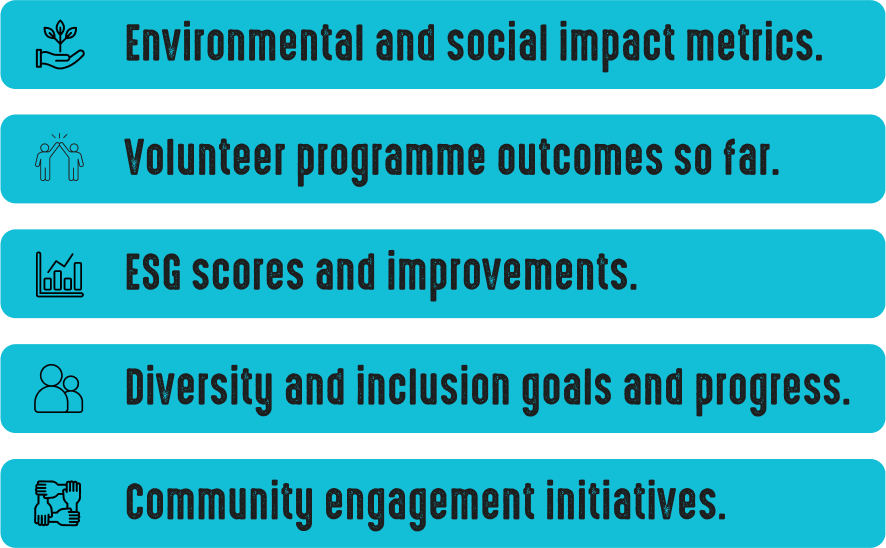
And be honest! Today’s candidates can spot greenwashing a mile away. If there’s something you’re actively trying to improve, talk about it during the hiring process. Your future hires will appreciate your transparency.
GET AHEAD OF THE GAME
The workforce is becoming younger and more purpose-driven by the day, so waiting until professionals are actively job hunting is a mistake.
Forward-thinking companies are already engaging with the future workforce by building partnerships with universities and colleges, offering targeted scholarships and internships, and creating graduate schemes that appeal to Gen-Zers.
This isn’t just a way to forge early connections – it’s also a strategic move to build credibility with the next generation of talent. When students see your leaders actively engaging with Gen-Zers at events or speaking at universities, they’re more likely to view your company as modern and approachable.
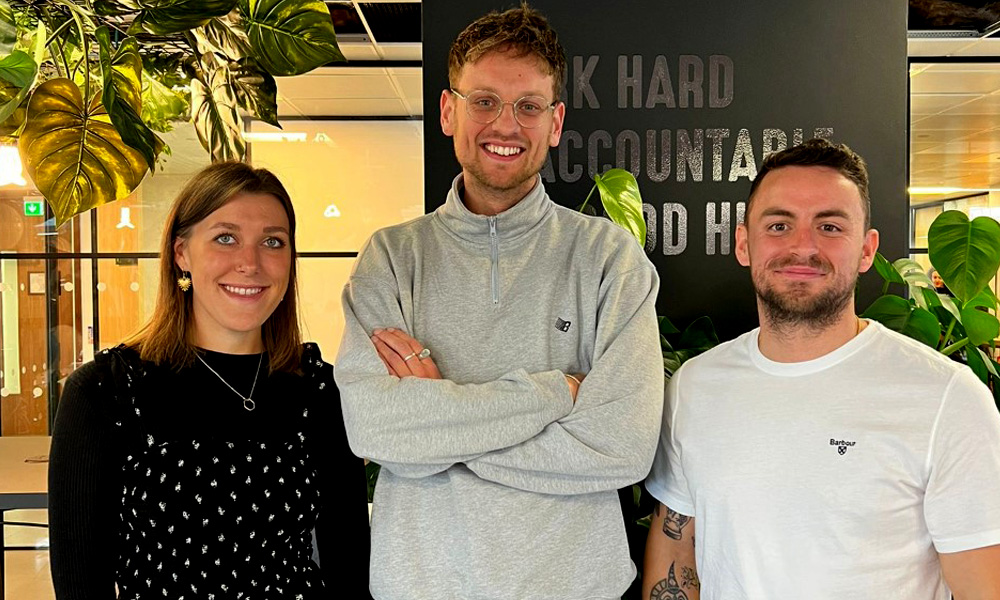
BE (GENUINELY) TRANSPARENT
Purpose-driven professionals don’t want to feel like just another number. In fact, 43% of Gen-Z workers want their voices heard when it comes to big company decisions.
Communicate clearly, listen to their feedback, and lead discussions about challenges that may impact the business. If you’ve advertised your environmental or diversity goals during the hiring process, keep employees updated on your progress. Mistakes and setbacks will inevitably happen, but owning them builds trust.
A genuinely transparent company culture thrives on feedback. Employees should feel empowered to share their thoughts without fear of repercussions. Give candidates a taste of this during the hiring process by asking them their thoughts and feedback at every stage.
DON’T HIDE THE BEST BITS
At SR2, we’ve met countless leaders who are far too modest. If you’re a purpose-led business with an ethical mission, don’t be afraid to shout it from the rooftops and make it the cornerstone of your employer brand. If your company has a great culture and people-first values, don’t just bury them on your “About Us” page!
Showcase your impact by:

Purpose-driven professionals value transparency, so don’t shy away from discussing challenges or areas for improvement during the hiring process. Authenticity will always resonate more than perfection.
TURN EMPLOYEES INTO ADVOCATES
Your most powerful recruitment tool is your current purpose-driven workforce. It’s no secret that most candidates want to be surrounded by like-minded people, so encourage your employees to share their experiences and become authentic advocates for your brand.
The easiest way to do this is to create an environment where every employee feels proud of their contributions – no matter how big or small. Celebrate their successes, help them set personal goals that align with your company’s mission, and ensure that every effort is recognised with genuine pride.
How can SR2 help you hire purpose-driven talent?
Connecting purpose-driven companies with purpose-driven talent isn’t just what we do – it’s who we are. Finding individuals who genuinely share your values, authentically align with your culture, and possess the right skillset isn’t easy, even for the best Hiring Managers and Talent Acquisition teams – it’s a full-time job! That’s where we come in.
WE’RE PURPOSE-DRIVEN RECRUITERS MAKING PURPOSE-DRIVEN MATCHES
As one of the few B-Corp-certified recruitment firms in the world, we practise what we preach when it comes to social responsibility. Our certification isn’t just a badge; it’s an integral part of how we operate. It allows us to build authentic connections with purpose-driven talent and offers a level of trust that most agencies struggle to achieve.
Our consultants aren’t just recruitment experts; they’re purpose-driven professionals themselves. They understand the technical requirements of your vacancies and the importance of value alignment, so they’ll ensure that every hire fits both your needs and your mission.
Over the years, we’ve built a vast ecosystem of professionals in tech, clean energy, and beyond who are all driven by purpose and impact. Our network is so much more than a traditional talent pool – it’s a genuine community of people who share the same values and have proven their commitment to making a difference.
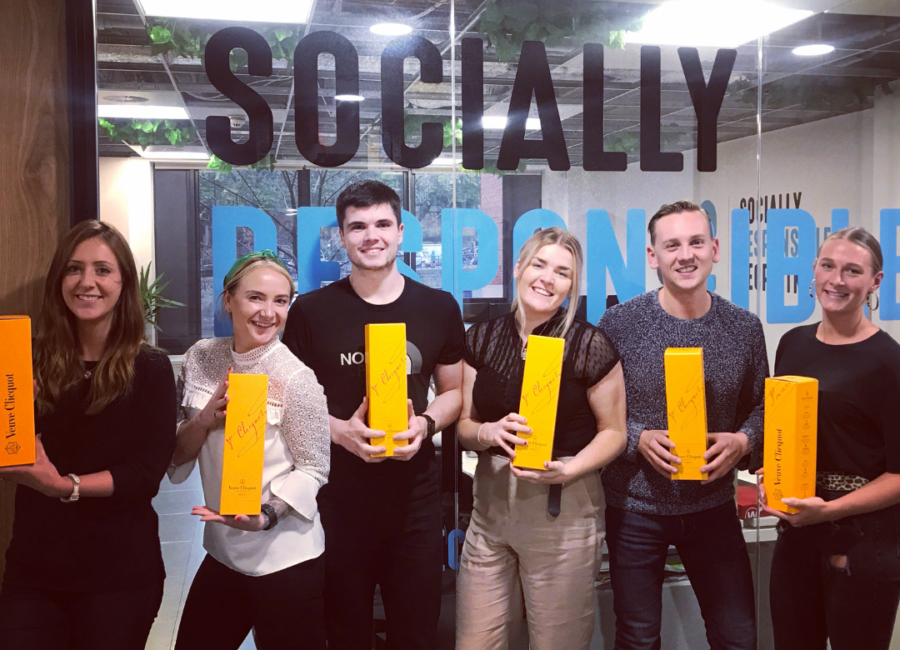
When you partner with SR2, you gain access to:
Purpose-driven recruiters finding purpose-driven talent for purpose-driven companies… what’s not to love?
How can you retain and develop purpose-led talent?
Getting purpose-driven talent through the door is just the first step. The real challenge is keeping them engaged, motivated, and aligned with your company’s goals. Achieving this is what sets great purpose-driven companies apart. Here’s how to build a retention strategy that speaks to the people you’d like on your side…
 REINFORCE YOUR PURPOSE AND VALUES EVERY DAY
REINFORCE YOUR PURPOSE AND VALUES EVERY DAY
Your purpose needs to be lived, not just stated. To keep purpose-driven employees engaged, make sure that every team member understands how their role contributes to the company’s overarching goals. Give them regular updates about progress towards your mission, celebrate achievements, and provide opportunities for employees to actively shape future impact initiatives. Purpose-driven professionals don’t want to watch from the sidelines; they want to be involved.
 PRIORITISE AUTONOMY AND EMPOWERED DECISION-MAKING
PRIORITISE AUTONOMY AND EMPOWERED DECISION-MAKING
Purpose-driven professionals thrive when they’re empowered to innovate and make their own decisions. They don’t enjoy rigid hierarchies or being micromanaged. Give them the freedom to make mission-aligned decisions without heaps of red tape.
 CREATE ALIGNED CAREER PATHWAYS
CREATE ALIGNED CAREER PATHWAYS
Career progression for purpose-driven professionals must balance growth with opportunities to make a tangible impact. Aim to design paths that showcase clear progression in both skill and impact potential, offer the chance to lead purpose-led initiatives, include mentorship and knowledge-sharing components at vertical and lateral levels, and provide cross-functional exposure to help them gain a holistic view of your business.
”ATTRACTING PURPOSE-DRIVEN TALENT IS JUST THE FIRST PIECE OF THE PUZZLE, NOW YOU NEED TO KEEP THEM ENGAGED & COMMITTED TO YOUR ORGANIZATION'S MISSION. RETENTION STARTS WITH AUTHENTICITY, EMPOWERMENT, AND CLEAR MOBILITY.
CHRIS SHEARDCEO, SR2 GROUP
Key Takeaways
As we’ve explored in this whitepaper, success in the purpose-driven talent market of 2025 requires a deep understanding of what motivates the evolving workforce. Here are the key points to remember…
THE EVOLVING WORKFORCE:
- Each generation brings unique perspectives to purpose-driven companies.
- While 85% of tech professionals are Millennials or Gen-Zers, purpose and values resonate across all age groups.
- Flexibility isn’t optional. The majority of professionals prefer hybrid or remote work arrangements.
- Learning is continuous and takes many forms, from formal education to on-the-job development.
BUILD A PURPOSE-DRIVEN CULTURE:
- Value diverse perspectives and experiences.
- Enable collaboration across age groups and experience levels.
- Create inclusive feedback channels and decision-making processes.
- Provide opportunities for both emerging and established leaders.
- Celebrate success stories.
- Maintain authenticity in all purpose-related initiatives.
VALUE DRIVEN DECISIONS:
- Purpose isn’t just a preference; it’s a requirement—nearly 90% of professionals prioritise purpose in their career choices.
- Environmental and social impact opportunities are deal-breakers for many.
- Competitive compensation must be paired with meaningful work and impact opportunities.
- Purpose-led benefits, from volunteering schemes to mentorship programs, are more appealing than traditional perks.
RETENTION THROUGH PURPOSE:
- Connect daily work to broader impact goals for all team members.
- Empower decision-making that aligns with company values.
- Recognise and celebrate purpose-driven contributions at every level.
- Create career paths that balance professional growth with meaningful impact.
- Encourage company-wide mentorship and knowledge sharing.Maintain transparency about progress toward impact goals.
- Support continuous learning and development across all career stages.
ATTRACTION STRATEGIES THAT WORK:
- Start early, but don’t focus solely on entry-level talent. Build pipelines across career stages.
- Make your values visible and provable through concrete actions and metrics.
- Transform your current purpose-driven employees into authentic brand advocates.
- Create a transparent, value-centred company culture that welcomes diverse perspectives.
- Demonstrate genuine commitment to social and environmental impact.
- Offer flexible work arrangements that accommodate different life stages and preferences.

Your next steps
Hopefully, the path to becoming a talent magnet for purpose-driven professionals has become a lot clearer. But here’s the good news – you don’t have to walk the path alone. As a B-corp-certified recruitment partner, SR2 brings expertise, network, and value alignment to help your business thrive in 2025.
Purpose-driven recruiters finding purpose-driven talent for purpose-driven companies… it just makes sense!
How we can help:
The future of work isn’t just about what we do. It’s about why we do it.

